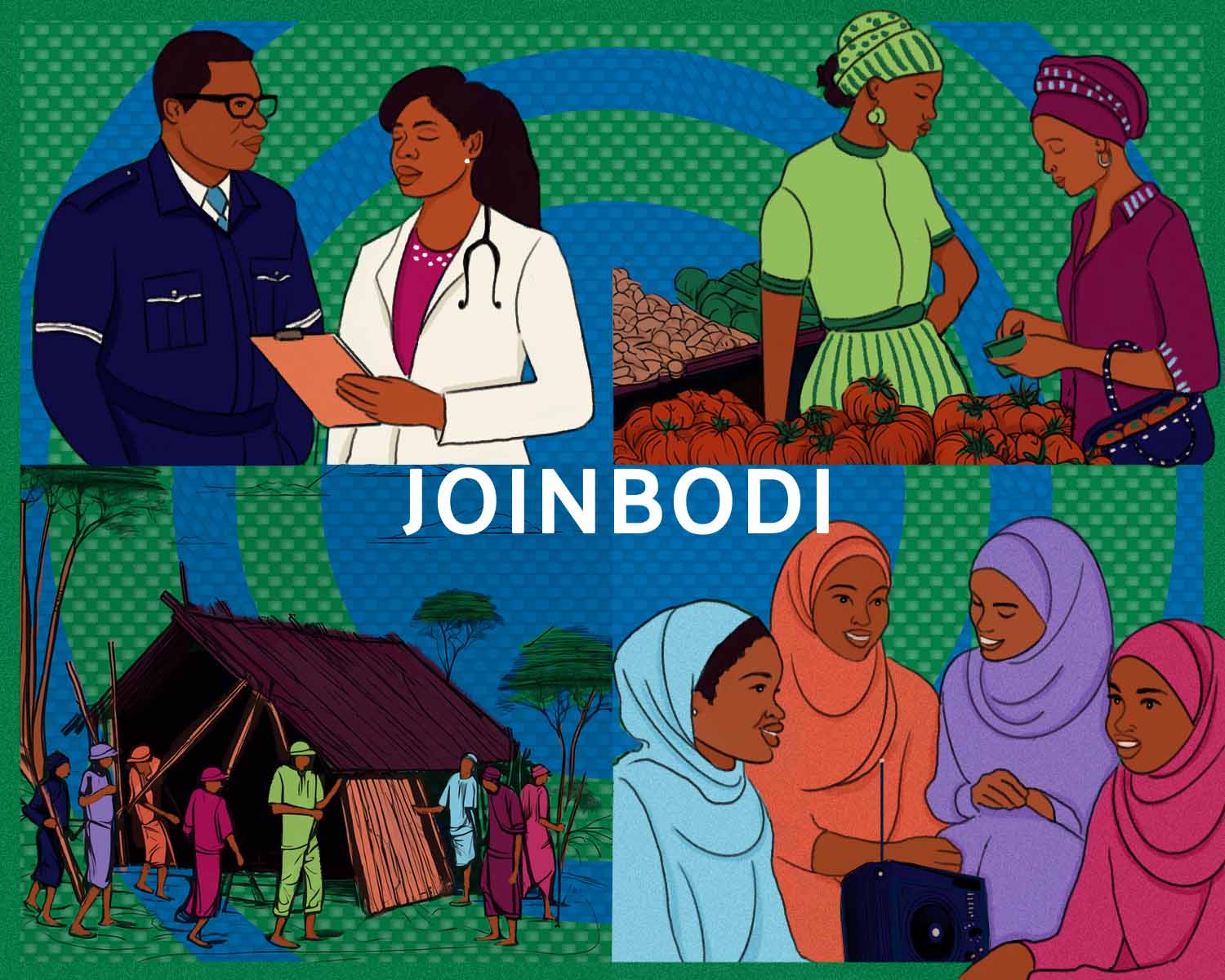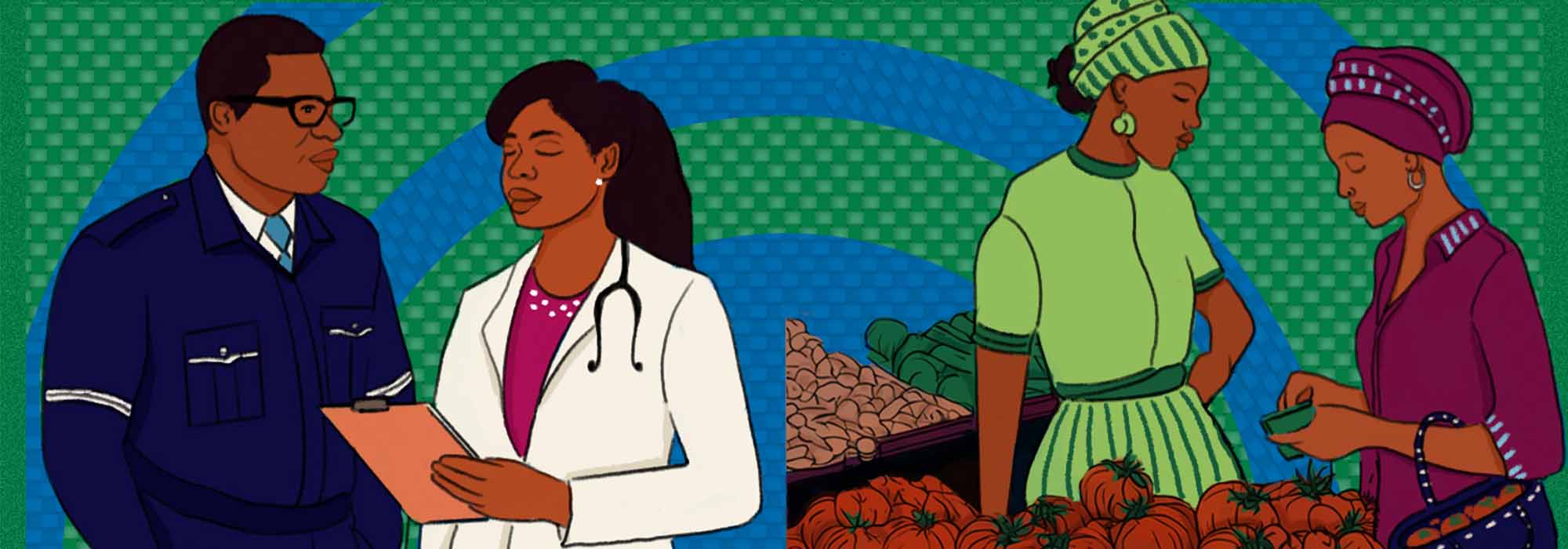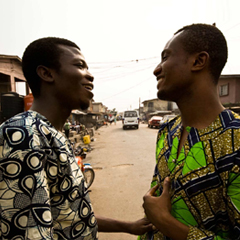Cohorts of civil society organizations, representing diverse communities, work together in solidarity to amplify and expand each other’s learning and success in anti-corruption efforts.
We know that corruption destroys societies, impoverishes people, and is difficult to uproot. We also know that a thriving Nigeria—with its rich natural resources, large and young population, and leadership on the continent and beyond—is important for the world today. Since 2016, the On Nigeria Program has worked to reduce corruption through Nigerian-led efforts to increase transparency, accountability, and participation. We do so by supporting grantees to advance criminal justice reform, strengthen the media and journalism sector, and influence behavior change, among other strategies.
Critical to our progress is the Nigerian concept of Joinbodi, a Pidgin word that means “solidarity” or “working together.”
Critical to our progress is the Nigerian concept of Joinbodi, a Pidgin word that means “solidarity” or “working together.” Rather than operating in isolation, grantees in the On Nigeria Program work in a cohort model, meeting often in a networked capacity to share what they have learned, to coordinate, and to build on each other’s successes.

The Nigerian concept of Joinbodi is a Pidgin word that means “solidarity” or “working together.”
The Joinbodi cohort is comprised of a diverse set of civil society organizations from across Nigeria—representing a variety of local and national communities—that share common goals and tactics. Together, Joinbodi works to achieve these goals: promoting policy implementation, collective action, and community participation around anti-corruption and accountability issues that matter to people in Nigeria. They often work in concert with other On Nigeria grantee partners such as in our Media and Journalism, Behavior Change, and Criminal Justice cohorts to influence change.
Strengthening Accountability Laws and Policies
Grantees advocate for and implement priority policies, programs, and laws that advance anti-corruption and accountability. These include the National Action Plan for the Open Government Partnership, Open Contracting Data Standards, the whistleblower policy, and the Freedom of Information Act, among others. For example, the Senate Committee on Anti-Corruption requested technical assistance from the Center for Fiscal Transparency and Integrity Watch (CeFTIW), a grantee, during the consideration of the Money Laundering (Prohibition and Prevention) Act 2022, the Proceeds of Crime (Management) Act 2022, and the Terrorism Prevention Act 2022. As the lead civil society organization, CeFTIW bolstered support for the passage of these laws to strengthen accountability in Nigeria.
Supporting Investigative Journalism
Cohort members lend their voice and skills to amplify investigative media reports and cold corruption cases, drawing attention and spurring action. For example, a deputy speaker of the House of Representatives promised a community running water and used constituency project funding to construct boreholes but abandoned the project. Socio-Economic Rights & Accountability Project, a grantee, flagged it, and Media and Journalism grantees Premium Times, TheCable, and International Center for Investigative Reporting published stories about the failed project. More Joinbodi grantees used the investigative reports to pressure the deputy speaker to act and petitioned the Independent Corrupt Practices and Related Offences Commission to investigate the matter. The petition and added demand compelled the legislator to complete the project.
Increasing Transparency and Inclusivity
Joinbodi promotes increased accountability and inclusivity by tracking the implementation of constituency projects, and ensuring that typically excluded groups have a voice in elections and local governance. For instance, a Joinbodi grantee, Women's Rights Advancement and Protection Alternative, engaged local and traditional institutions using the Nigeria Gender Policy Framework to demand inclusion. As a result, more than 150 women were included in community leadership and governance structures in 44 communities across nine local government areas in Enugu State, a largely rural region in south-central Nigeria. During the 2023 elections, a viral video showed women of the Ebenebe community in neighboring Anambra State openly turning down bribes and declaring that they would not trade their votes. It was a first-of-its-kind demonstration of accountability and agency in that locality.
Joinbodi is a value, a way of working, and an outcome. Joinbodi grantees design and conduct their activities in ways that advance gender equity and social inclusion, including across faith, ethnicity, generation, ability, and geography, as captured in these civic engagement case studies. In the face of an intractable issue such as corruption, through Joinbodi, our grantees weave together community networks and community-based organizations to spark community action, which we believe is vital to bringing about lasting change in Nigeria.




